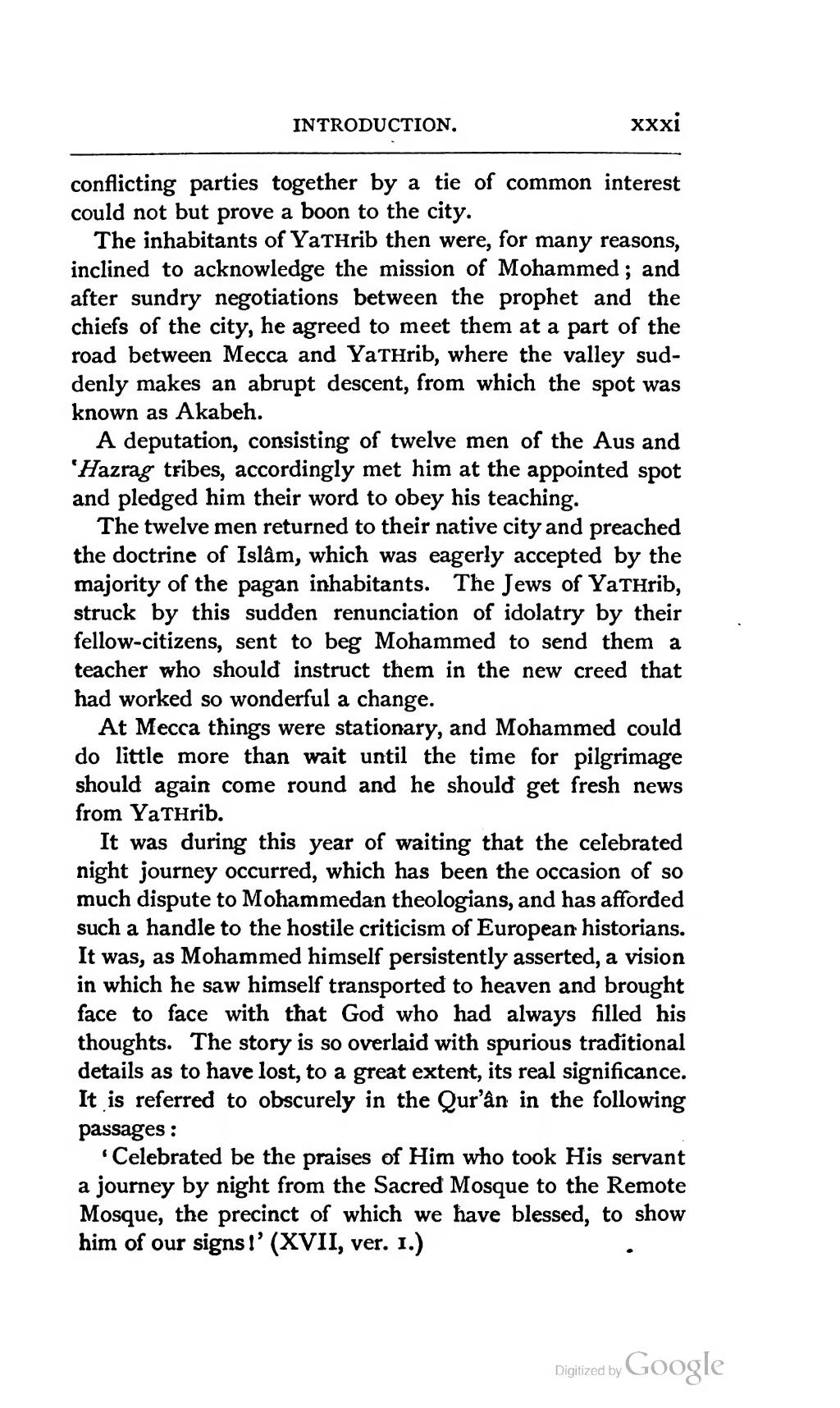conflicting parties together by a tie of common interest could not but prove a boon to the city.
The inhabitants of Yathrib then were, for many reasons, inclined to acknowledge the mission of Mohammed; and after sundry negotiations between the prophet and the chiefs of the city, he agreed to meet them at a part of the road between Mecca and Yathrib, where the valley suddenly makes an abrupt descent, from which the spot was known as Akabeh.
A deputation, consisting of twelve men of the Aus and ʿHazrag tribes, accordingly met him at the appointed spot and pledged him their word to obey his teaching.
The twelve men returned to their native city and preached the doctrine of Islâm, which was eagerly accepted by the majority of the pagan inhabitants. The Jews of Yathrib, struck by this sudden renunciation of idolatry by their fellow-citizens, sent to beg Mohammed to send them a teacher who should instruct them in the new creed that had worked so wonderful a change.
At Mecca things were stationary, and Mohammed could do little more than wait until the time for pilgrimage should again come round and he should get fresh news from Yathrib.
It was during this year of waiting that the celebrated night journey occurred, which has been the occasion of so much dispute to Mohammedan theologians, and has afforded such a handle to the hostile criticism of European historians. It was, as Mohammed himself persistently asserted, a vision in which he saw himself transported to heaven and brought face to face with that God who had always filled his thoughts. The story is so overlaid with spurious traditional details as to have lost, to a great extent, its real significance. It is referred to obscurely in the Qurʼân in the following passages:
'Celebrated be the praises of Him who took His servant a journey by night from the Sacred Mosque to the Remote Mosque, the precinct of which we have blessed, to show him of our signs!' (ⅩⅦ, ver. 1.)
